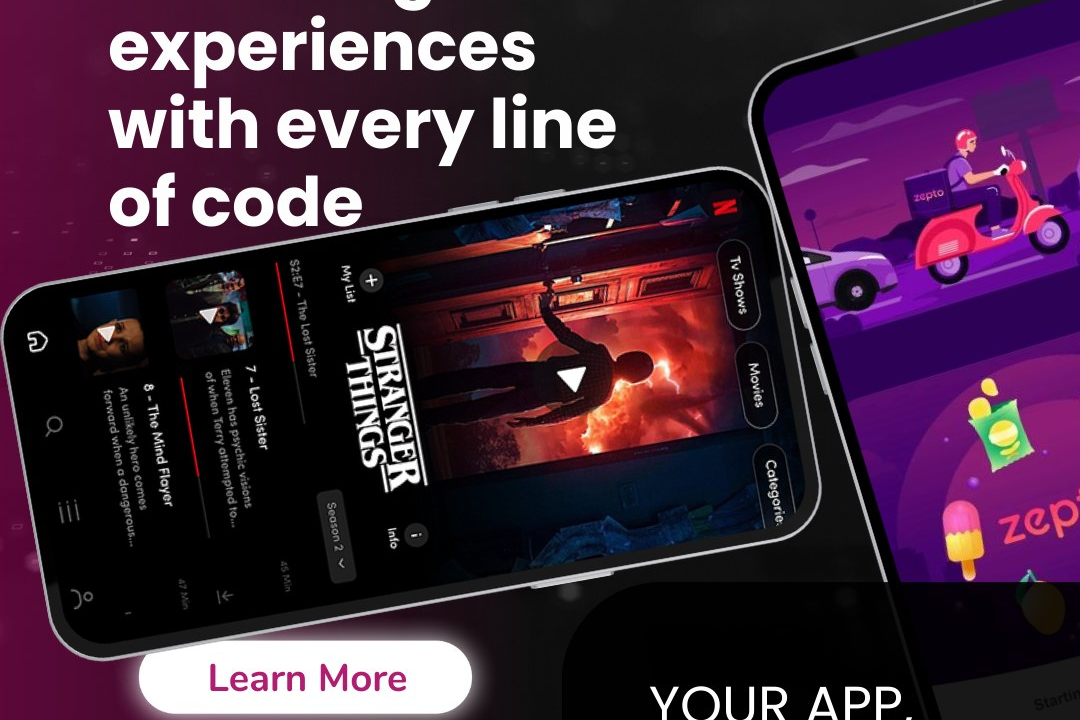Future Of Android Development
The Next Frontier in Android Development
Future Of Android Development
The future of Android development is poised to be shaped by several transformative trends, including the rise of Kotlin as the preferred programming language, increased adoption of Jetpack Compose for modern UI development, and a focus on cross-platform solutions like Flutter. Additionally, advancements in artificial intelligence and machine learning are enabling smarter, more intuitive applications, while tools for enhanced security and privacy are becoming paramount as user awareness grows. The introduction of 5G technology promises faster app performance and more innovative real-time features, and the expansion of IoT will lead to a broader ecosystem of connected devices. With a growing emphasis on sustainability and user-centric design, Android developers are set to create more engaging, efficient, and responsible applications for an increasingly diverse and global user base.
To Download Our Brochure: https://www.justacademy.co/download-brochure-for-free
Message us for more information: +91 9987184296
1 - Kotlin as the Primary Language: Kotlin has become the preferred language for Android development, offering concise syntax, null safety, and interoperability with Java, making it essential for students to master this language.
2) Jetpack Compose: The modern toolkit for building native UI. Jetpack Compose simplifies UI development by using a declarative approach, fostering better app design practices and improving maintainability.
3) Cross Platform Development: Technologies like Flutter and React Native are gaining traction. Training should include exposure to these frameworks to enable students to build apps for both Android and iOS with a single codebase.
4) Adoption of Android Architecture Components: Emphasizing architecture patterns (MVVM, MVP, MVI) with components like LiveData, ViewModel, and Room will help students understand best practices for scalable app development.
5) Increased Focus on Security: As cyber threats grow, teaching best practices for app security, including data encryption and secure network communication (HTTPS, OAuth) will prepare students for real world challenges.
6) Augmented Reality (AR): With ARCore gaining popularity, training programs should introduce AR concepts and applications, allowing students to develop innovative apps that blend the physical and virtual worlds.
7) Machine Learning Integration: Using libraries like TensorFlow Lite, students can learn to implement machine learning models on Android devices, enhancing app functionalities with AI capabilities.
8) 5G Technology Exploitation: With 5G rollout increasing, students should learn how to optimize apps for higher bandwidth and lower latency, allowing for richer media experiences and real time interactions.
9) Internet of Things (IoT) Compatibility: More Android apps are interfacing with IoT devices. Training should cover how to connect and communicate with IoT hardware using Android, expanding potential project scopes for students.
10) User Experience (UX) Design Principles: Emphasizing UX design will ensure students understand the importance of creating apps that provide a seamless and intuitive user experience, crucial for app success.
11) Cloud Integration: Teaching students how to integrate apps with cloud services (like Firebase and AWS) will help them understand backend services, enhancing their app development capabilities.
12) App Distribution and Monetization Strategies: Students should learn different app distribution channels, marketing strategies, and monetization models (subscriptions, in app purchases) to prepare for the business side of app development.
13) Continuous Integration and Deployment (CI/CD): Familiarizing students with CI/CD tools like Jenkins, GitHub Actions, or Bitrise will help them understand how to automate testing and deployment, making their development process more efficient.
14) Community and Collaboration Skills: Encouraging participation in open source projects and developer communities can enhance teamwork skills and improve their real world coding practices through collaboration.
15) Sustainability in Development: Teaching students about energy efficient coding and reducing app sizes can contribute to sustainable development practices, aligning with global trends toward eco friendliness.
16) Voice User Interfaces (VUIs): Introduction to creating apps that utilize voice recognition technology (such as Google Assistant integrations) will help students stay ahead in the evolving interface landscape.
17) Personalization and User Retention Techniques: Understanding analytics and strategies for personalizing user experiences can help equip students with skills to enhance user engagement and retention in their apps.
These points provide a comprehensive guide to the skills and knowledge students will need to thrive in the future of Android development, ensuring they are well prepared for a rapidly evolving tech landscape.
Browse our course links : https://www.justacademy.co/all-courses
To Join our FREE DEMO Session: Click Here
Contact Us for more info:
about salesforce developer
iOS Training in Sailu
machine learning in python course
Dart Flutter Tutorial
python ml course











